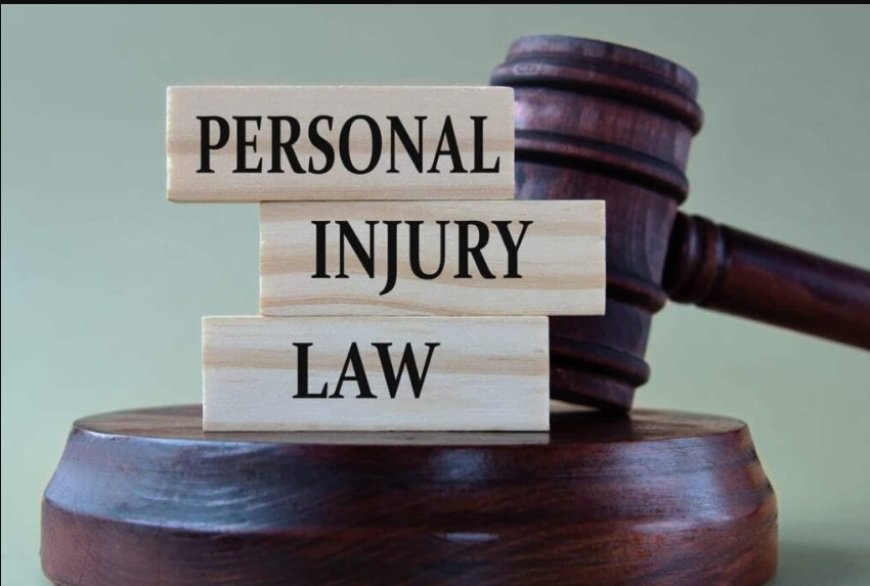Injury Attorney: Your Advocate for Justice and Compensation

Introduction
In the aftermath of an accident, whether it's a car crash, workplace incident, or slip and fall, victims are often left overwhelmed—facing physical pain, emotional stress, and financial uncertainty. Navigating the legal system during such a vulnerable time can be daunting. That’s where an injury attorney steps in. These legal professionals specialize in representing individuals who have been harmed due to the negligence or wrongdoing of others.
This article provides a comprehensive overview of what an injury attorney does, when and why you might need one, how they operate, and how to choose the best legal advocate for your specific case. We’ll break it down with informative headings, a table to compare types of personal injury cases, and a list of key considerations when hiring a lawyer.
What Is an Injury Attorney?
Understanding the Role
An injury attorney, also known as a personal injury lawyer, represents clients who claim to have suffered physical or psychological injury as a result of another party’s negligence or intentional conduct. Their primary goal is to secure fair compensation for their clients through negotiation or litigation.
Injury attorneys handle a wide range of cases, such as:
-
Motor vehicle accidents
-
Medical malpractice
-
Product liability
-
Workplace accidents
-
Premises liability (e.g., slip and fall)
-
Wrongful death
They investigate claims, gather evidence, interview witnesses, consult with experts, and advocate for their clients in court or settlement discussions.
Common Types of Personal Injury Cases and Examples
| Type of Injury Case | Example Incident | Liable Party | Potential Compensation |
|---|---|---|---|
| Car Accident | Rear-end collision by distracted driver | Negligent driver | Medical bills, lost wages, pain |
| Medical Malpractice | Misdiagnosis or surgical error | Doctor, hospital | Future care costs, emotional harm |
| Workplace Injury | Slip on wet floor at factory | Employer or third-party vendor | Workers’ comp, punitive damages |
| Product Liability | Defective car airbag deployment | Manufacturer, distributor | Repairs, injury-related expenses |
| Slip and Fall | Wet floor in grocery store with no signage | Store owner or property manager | Hospital expenses, suffering |
| Wrongful Death | Fatal truck accident caused by fatigue | Trucking company or driver | Funeral costs, loss of income |
Why You Need an Injury Attorney
Advantages of Legal Representation
Hiring an injury attorney is crucial for several reasons:
-
Legal Expertise: Personal injury law can be complex and varies by state. Attorneys understand statutes of limitation, liability standards, and procedural requirements.
-
Investigation Support: Lawyers gather crucial evidence including accident reports, surveillance footage, medical records, and expert testimony.
-
Negotiation Power: Insurance companies often try to minimize payouts. An experienced attorney can negotiate more effectively on your behalf.
-
Court Representation: If your case goes to trial, having an attorney is indispensable.
-
Peace of Mind: Knowing that a professional is handling your case allows you to focus on recovery.
Key Steps in a Personal Injury Claim Process
-
Initial Consultation – Meet with an attorney to evaluate your case.
-
Investigation – Collect evidence such as police reports, witness statements, and medical records.
-
Filing a Claim – The attorney files legal paperwork with courts or insurance companies.
-
Negotiation – Settlement discussions begin between your lawyer and the other party.
-
Litigation – If no settlement is reached, the case goes to trial.
-
Resolution – Compensation is awarded via verdict or agreed settlement.
How Injury Attorneys Are Compensated
Understanding Contingency Fees
Most injury attorneys work on a contingency fee basis, which means you don’t pay unless you win the case. Here’s a breakdown of common financial terms:
-
Contingency Fee: Usually 30%–40% of the settlement or verdict
-
Court Fees: Paid upfront by the lawyer and reimbursed after recovery
-
Free Consultations: Most firms offer a no-obligation consultation
This model ensures that the attorney is motivated to win and makes legal help accessible even if you can’t afford upfront fees.
Qualities of a Good Injury Attorney
When choosing an attorney, consider the following characteristics:
-
Experience: Years of practice in personal injury law and a strong track record
-
Communication: Regular updates and clear explanation of legal terms
-
Resources: Access to investigators, experts, and legal research tools
-
Client Reviews: Positive testimonials from former clients
-
Trial Willingness: Readiness to go to court if settlement negotiations fail
When to Contact an Injury Attorney
It’s best to contact an attorney as soon as possible after an incident, especially if:
-
You’ve sustained serious or permanent injuries
-
You’re facing high medical bills or long-term treatment
-
There is a dispute about who is at fault
-
The insurance company is pressuring you to settle quickly
Delays can weaken your case or even cause you to miss the statute of limitations deadline.
Real-Life Scenario: Slip and Fall Case
Consider a 45-year-old woman who slipped on an unmarked wet floor in a department store, resulting in a broken hip. She spent two weeks in the hospital and three months in physical therapy. The store’s insurance company initially offered a small settlement, denying fault. After hiring a personal injury attorney, an investigation revealed poor maintenance records and prior complaints. The attorney negotiated a six-figure settlement that covered medical bills, lost wages, and pain and suffering.
This example illustrates how vital an experienced lawyer can be in maximizing compensation.
Conclusion
An injury attorney is more than just a legal advisor—they are your advocate, negotiator, and guide through one of the most difficult times in your life. Whether you’re suffering from a car accident, workplace injury, or medical malpractice, having the right attorney can make a significant difference in the outcome of your case.
From understanding your rights to securing maximum compensation, a skilled personal injury lawyer ensures that justice is not only sought but served. If you or a loved one has been injured due to someone else’s negligence, don’t wait. Consult an injury attorney today and take the first step toward recovery and justice.






























